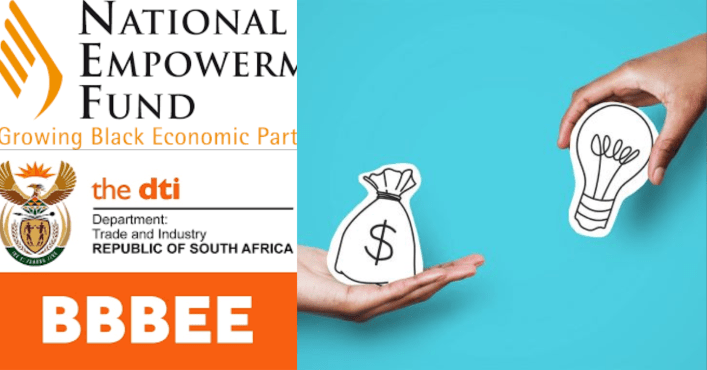Business funding may be acquired for start-ups, expansion, or for purchasing an existing business. Funding for businesses in South Africa can be procured through government funding institutions and grants, as they are focused on providing funding for ventures that can make a positive difference in the economy. The agencies and relevant funders that provide business funding in South Africa will be discussed further below.
Types of Business Funding in South Africa
- Government grants
- Loan financing
- Equity funding
- Venture capital funding
- Angel investment funding
- Personal debt finance
Business Funding Services offered by DTC…
In being a company that specialises in business finance and that assists with the management and implementation of the financial process, DTC has a network of finance partners. These include; venture capital companies, private equity firms, government BEE initiatives, banks, angel funds, crowd funds, Silicon Cape investment companies as well as rent to own funding initiatives. Let us assist you with your business funding!
Business Funding Agencies in South Africa
Business funding in South Africa is provided through various agencies and funders that DTC has extensive experience with. These funders are described below:
The Department of Trade & Industry (DTI)
The DTI provides grant funding to businesses from a range of sectors aimed at development. It is involved in promoting economic development, Black Economic Empowerment, implementing commercial law, promoting and regulating international trade, and consumer protection.
Automotive Investment Scheme (AIS):
The AIS is designed to grow and develop the automotive sector through investment in new and/or replacement models and components that will increase plant production volumes, sustain employment and/or strengthen the automotive value chain.
Capital Projects Feasibility Programme (CPFP):
The CPFP is a cost-sharing programme that contributes to the cost of feasibility studies that are likely to lead to projects outside South Africa, that will increase local exports and stimulate the market for South African capital goods and services.
Clothing And Textile Competitiveness Improvement Programme (CTCIP):
The CTCIP aims to build capacity among clothing and textile manufacturers and in other facets of the apparel value chain in South Africa to enable them to effectively supply customers and compete on an international scale. Such competitiveness encompasses issues of cost, quality, flexibility, reliability, adaptability, and the capability to innovate.
Production Incentive (PI):
Under the PI, applicants can use the full benefit as an upgrade grant facility, an interest subsidy facility, or a combination of both.
Critical Infrastructure Programme (CIP):
The CIP aims to enhance investment by supporting critical infrastructure, therefore lowering the costs of investment. It is made available to approved eligible enterprises upon the completion of the infrastructure project concerned. Infrastructure for which funds are required is deemed as ‘critical’ if the investment would not take place without the said infrastructure or investment would not operate at optimum.
People-Carrier Automotive Incentive Scheme (P-AIS):
This incentive is designed to stimulate growth for the people-carrier vehicles industry through investment in new and/or replacement models and components that will result in new employment, retention of current employment, and/or strengthen the automotive vehicles value chain.
Section 12I Tax Allowance Incentive (12I):
The12I Tax Incentive is designed to support Green field investments (new industrial projects that utilise only new and unused manufacturing assets), as well as Brown field investments (expansions or upgrades of existing industrial projects). The new incentive offers support for capital investment as well as training.
Support Programme for Industrial Innovation (SPII):
The SPII is a support programme of the DTI. This programme is designed to promote technology development in South Africa through the provision of financial assistance for the development of innovative products and/or processes. The SPII specifically focuses on the developmental phase, which begins at the conclusion of basic research and ends when a pre-production prototype has been manufactured.
Aquaculture Development Enhancement Programme (ADEP):
The ADEP is an incentive programme available to South African-registered entities engaged in primary, secondary, and ancillary aquaculture activities in marine and freshwater classified under SIC132 (fish hatcheries and fish farms) and SIC 301 and 3012 (production, processing and preserving of aquaculture fish). The grant is provided directly to approved applications for new projects or the upgrade or expansion of existing projects.
The Industrial Development Corporation (IDC)
The IDC provides numerous funds aimed at supporting start-up and existing businesses that require capital for equipment, building, and working capital. It is a self-financing, state-owned national development finance institution. The primary objectives include contributing to the generation of balanced, sustainable economic growth in Africa and to the economic empowerment of the South African population, thereby promoting the economic prosperity of all citizens. The IDC achieves this by promoting entrepreneurship through the building of competitive industries and enterprises based on sound business principles. Supporting industrial development capacity and promoting entrepreneurship are therefore key objectives of the IDC. The IDC provides funding for start-up and existing businesses up to a maximum of R1 billion.
The Isivande Women’s Fund (IWF)
The IWF is a fund designed to empower women with existing businesses. It aims to accelerate black economic empowerment by providing more affordable, usable, and responsive finance. It was originally aimed at women only but opened up now for all black persons in South Africa. The fund is managed by the IDF on behalf of the DTI. It was originally aimed at women only but opened up now for all black persons in South Africa. The IWF assists with support services to enhance the success of businesses. It pursues deals involving start-up funding, business expansion, business rehabilitation, franchising, and bridging finance.
The KZN Growth Fund
The fund is aimed at creating sustainable economic development, job creation, and black economic empowerment within the infrastructure sector in KwaZulu-Natal. The KZN Growth Fund is essentially a debt fund, structured as a unique public-private partnership between the Provincial Government, commercial invitations and development finance institutions. It was established with a mandate to finance medium to large scale infrastructure-related projects throughout KwaZulu Natal, which drives economic success, stimulates job creation, promotes broad-based black economic empowerment (BB-BEE) and reduces inequality. The Growth Fund targets infrastructure related projects of R30 million and above. Each project will be required to generate new and sustainable job opportunities, foster black economic empowerment throughout the province, and demonstrate an ability to repay the debt funding.
The Land Bank
The Land Bank of South Africa is a specialist agricultural bank that is owned by the Government, and is a key financial player in agriculture. It is guided by a government mandate to provide financial services to the commercial farming sector and to agricultural business, and to make available certain financial products which would facilitate access to finance by new entrants to agriculture, from historically disadvantaged backgrounds. The Land Bank offers a broad range of loans for all financial needs. These include buying land, equipment, and working capital for agricultural projects.
The National Empowerment Fund (NEF)
The NEF promotes and facilitates black economic participation by providing financial and non-financial support to black empowered businesses. The NEF promotes a culture of savings and investment among black people. The role of the NEF is to support Broad-Based Black Economic Empowerment (BB-BEE). It provides business loans from R250 000 to R75 million across all industry sectors, for start-ups, expansion and equity acquisition purposes. The NEF implements its mandate through Asset Management, Fund Management, and through the Strategic Projects Fund. Business funding is attainable through the Imbewu Fund, the Umnotho Fund, and the Rural and Community Development Fund.
The Small Enterprise Finance Agency (SEFA)
SEFA‘s mandate is to foster the establishment, survival, and growth of SMMEs and contribute towards alleviating poverty and job creation. SEFA provides loans directly to Small and Medium sized Enterprises, as well as co-operatives operating in all sectors of the economy. The facilities range from a minimum of R50 000 to a maximum of R5 million. The agency provides start-loans, business loans, institutional lending, and on-lending loans. Sectors SEFA operates in include; agriculture, construction, green industries, services, manufacturing, and mining.
The Technology Innovation Agency (TIA)
The main objective of TIA is stimulating technological innovation to improve economic growth, by developing and exploiting technological innovations, and therefore improving the quality of life for all South Africans. TIA’s core business objective is to support the development and commercialisation of competitive technology-based products and services. The Agencyuses South Africa’s science and technology base to develop new industries, create sustainable jobs and help diversify the economy. It seeks to support technological ideas moving along the technology innovation value chain, reducing risk and increasing the likelihood that products and services will enter social and economic markets. In this context, the TIA will provide funding, and other support, to individuals developing and commercialising technologies, including start-ups, small and medium-sized enterprises, and large private companies. It provides financial and non-financial support to its stakeholders, typically Science Councils, Public Entities, Higher Education Institutions, private research institutions, and entrepreneurs. The agency invests primarily in the following sectors; Advanced Manufacturing, Agriculture, Industrial Biotechnology, Health, Mining, Energy, and ICT.
Contact the DTC Team today for more information on business funding…



